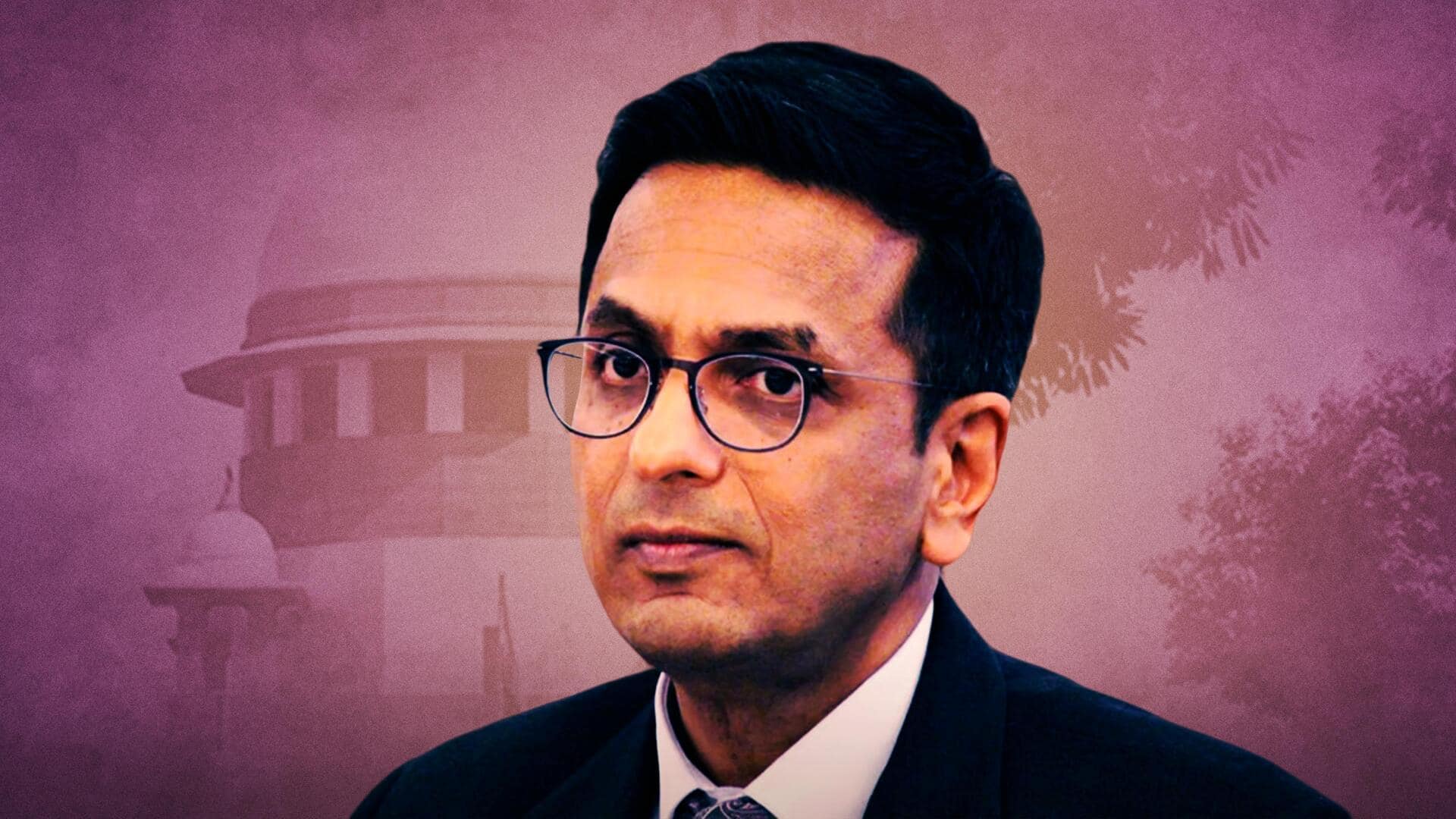
'Tareekh-pe-tareekh': CJI Chandrachud urges lawyers to avoid unnecessary adjournments
What's the story
Chief Justice of India (CJI) DY Chandrachud called on attorneys on Thursday to avoid seeking unnecessary postponements in legal proceedings.
He pointed out the contradiction of lawyers requesting urgent case scheduling only to later ask for delays.
The CJI encouraged advocates to request adjournments solely when "very very necessary" to prevent the court from becoming a "tareekh-pe-tareekh" court.
Notably, the phrase was popularized by Sunny Deol in his film Damini, wherein he played a lawyer fed up with court adjournments.
Context
Why does this story matter?
The Supreme Court of India (SC) is one of the most vital institutions in the country, hearing hundreds of cases every day.
These cases range from public interest litigations (PILs) against Einstein's theories to Muslim divorce laws, same-sex marriages, mob lynchings, killer tigers, etc.
Unlike the Supreme Court of the United States (SCOTUS), which hears only about 70 cases annually, the various panels of the Indian top court hear up to 700 legal matters every day.
Details
178 adjournment slips on single day: CJI Chandrachud
Justice Chandrachud pointed out that on Friday alone, there were 178 adjournment slips, with an average of 154 adjournments circulated per miscellaneous day between September 1 and 3.
In total, 3,688 adjournments occurred in two months. "This cannot become a tareek pe tareek court. This defeats the trust of citizens in our court," Justice Chandrachud commented.
Urging legal practitioners to seek adjournments only when absolutely essential, he said that the practice also defeats the purpose of filing and listing.
What Next?
Paradox of urgent listing and subsequent adjournments
The CJI also pointed out that it was paradoxical how legal matters are listed for urgent hearings and then adjourned.
Since September 2023, the court has seen 2,361 cases mentioned for urgent listing, averaging 59 cases mentioned daily.
Chandrachud observed that in the SC, lawyers can request adjournments by circulating a letter, whereas in high courts, the request must be made before the judge, and it depends upon the discretion of the judge to adjourn the matter.
Supreme Court of India
Everything about the Supreme Court of India
The Supreme Court of India was established in 1950 after the independence of India from the British rule in 1947.
Dhananjaya Yeshwant Chandrachud is the current Chief Justice of India (CJI). He will retire in November next year after completing a two-year tenure.
The SC is made up of the chief justice and 33 other judges appointed by the President of India.
Pending cases
Over 5 crore pending in Indian courts: Law minister
In July this year, Law Minister Arjun Ram Meghwal revealed that over 5.02 crore cases were pending in various courts in India.
"As per data retrieved from the Integrated Case Management System (ICMIS), as of July 1, there are 69,766 cases pending solely in the Supreme Court," he said.
On Friday, CJI Chandrachud asserted that the SC had been trying to fix hearings for fresh cases to reduce the backlog, the Deccan Herald reported.